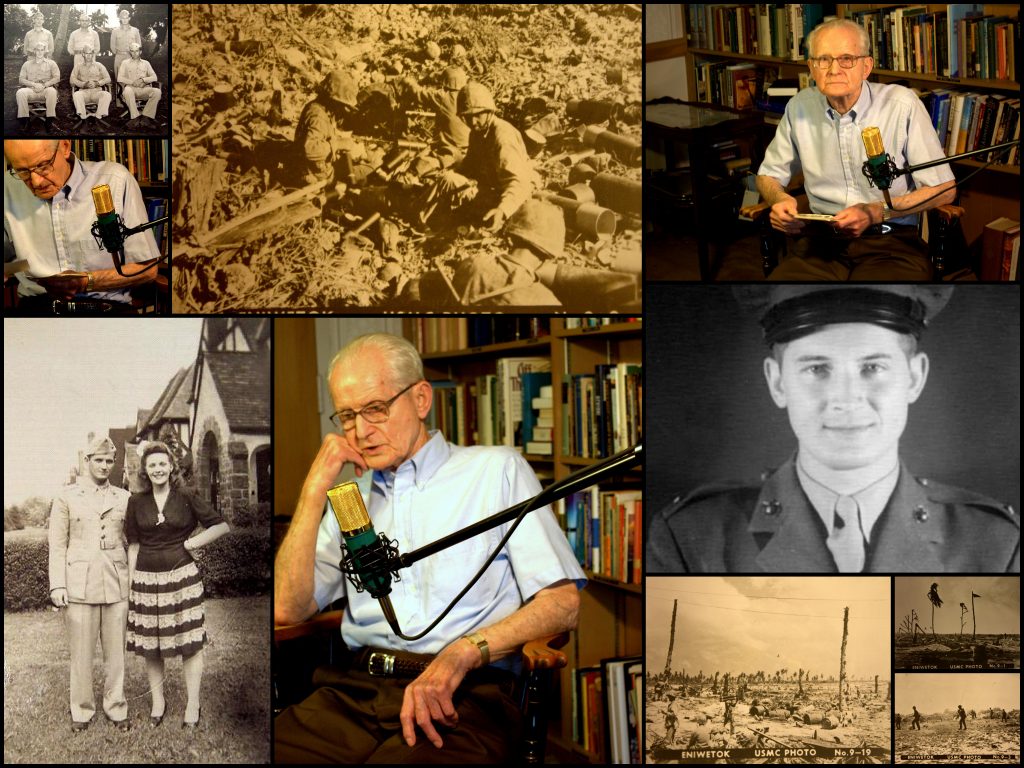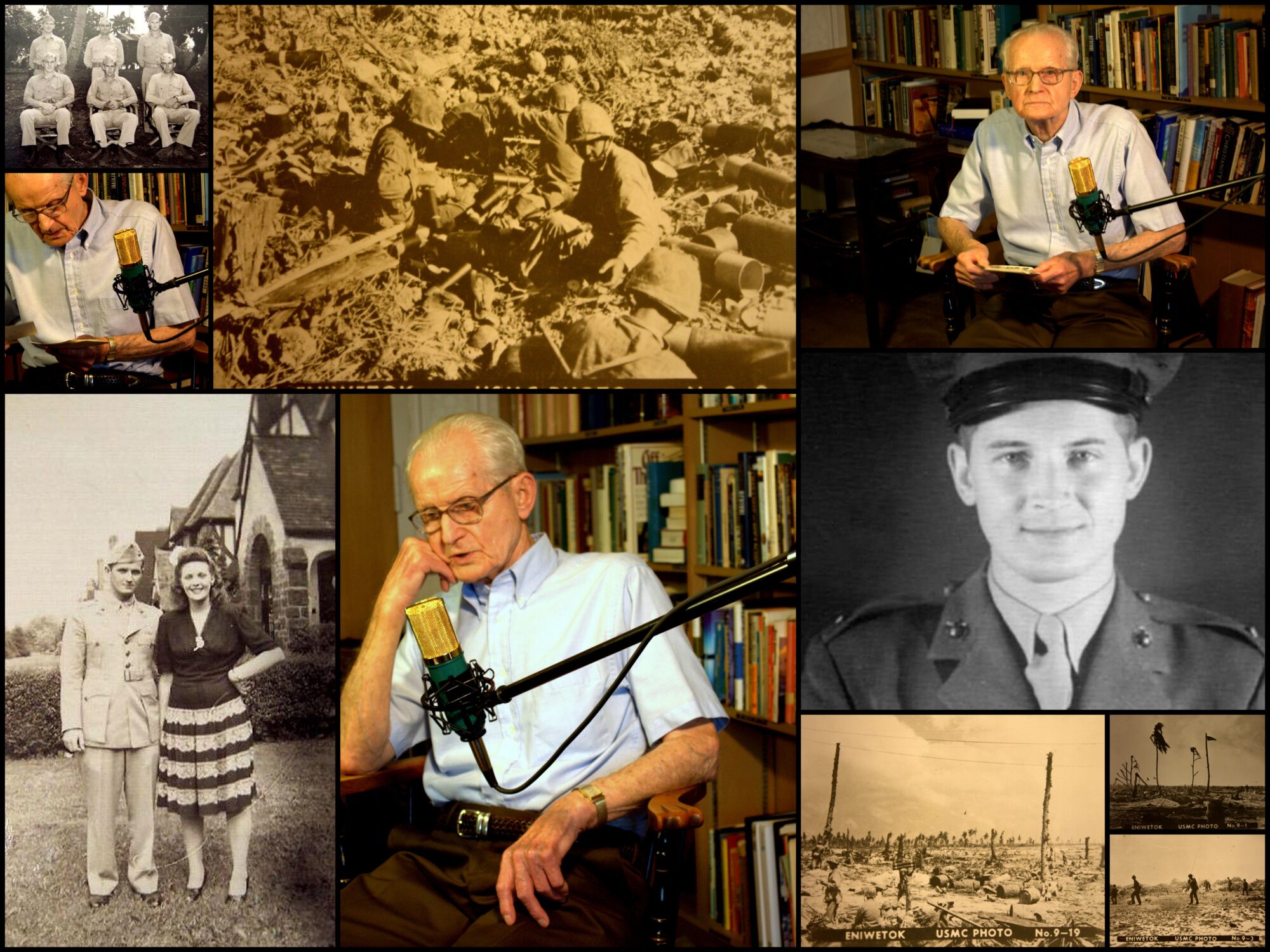Gallery with alias: PUBLIC_HISTORY_BLOG_POSTS not found
 Whenever I talk to groups about my work recording veterans oral histories, I usually share a story about Mr. Donald Myers, a WWII Marine officer who led his troops through some of the most horrific combat in the South Pacific islands.
Whenever I talk to groups about my work recording veterans oral histories, I usually share a story about Mr. Donald Myers, a WWII Marine officer who led his troops through some of the most horrific combat in the South Pacific islands.
Think of those old black & white war films from the islands. Flame-throwers, bayonets, hand to hand fighting, corpses strewn throughout the jungle, bodies rotting in the tropical sun. This is what young Lt. Myers endured, going from island to island. The fighting always got worse, never easier. “And then one time some of our boys’ bodies were mutilated,” he would eventually say. I could sense the time-worn anger in his voice. “Their genitals were cut off and stuffed in their mouths.”
Before the interview began, while I was towering over him rigging a microphone to his shirt, Mr. Myers quietly looked up at me and said, “Young man, can I use the word ‘Japs’?”
Many veterans are very nervous and unsure about what to say during interviews. “This is your story, Mr. Myers,” I said encouragingly. “Why do you ask?”
“Well, my daughter says we no longer use the term, Japs. It’s offensive. She wants me to say ‘Japanese’ instead.”
“This is your story,” I repeated. “I want you to be comfortable telling your story in your own words.”
The old man looked up at me, his ninety year old eyes ringed in red dampness. “Alright then,” he said stoically, his chest beginning to slightly heave. He went silent, rehearsing something in his mind—perhaps it was words, perhaps terrible memories. After a few minutes he quietly said, “Alright, I think I’ll do that.”
Indeed, the story Mr. Myers’ told that day was just as we expected—violent, painful, sad, and bitter. It was an honest and authentic account–in his own words–of his experience fighting (he repeated often) “those damn Japs” during the war.
I like to think the way we approach our veterans oral history work (i.e., encouraging veterans to tell their stories in their own words, where ever that leads them) is important and meaningful not only for us (the public), but more importantly, for the veterans themselves who are, in many cases, still struggling for the right words, time, and place to tell their stories.
MORE ESSAYS & THOUGHTS ON PUBLIC HISTORY

You must be logged in to post a comment.